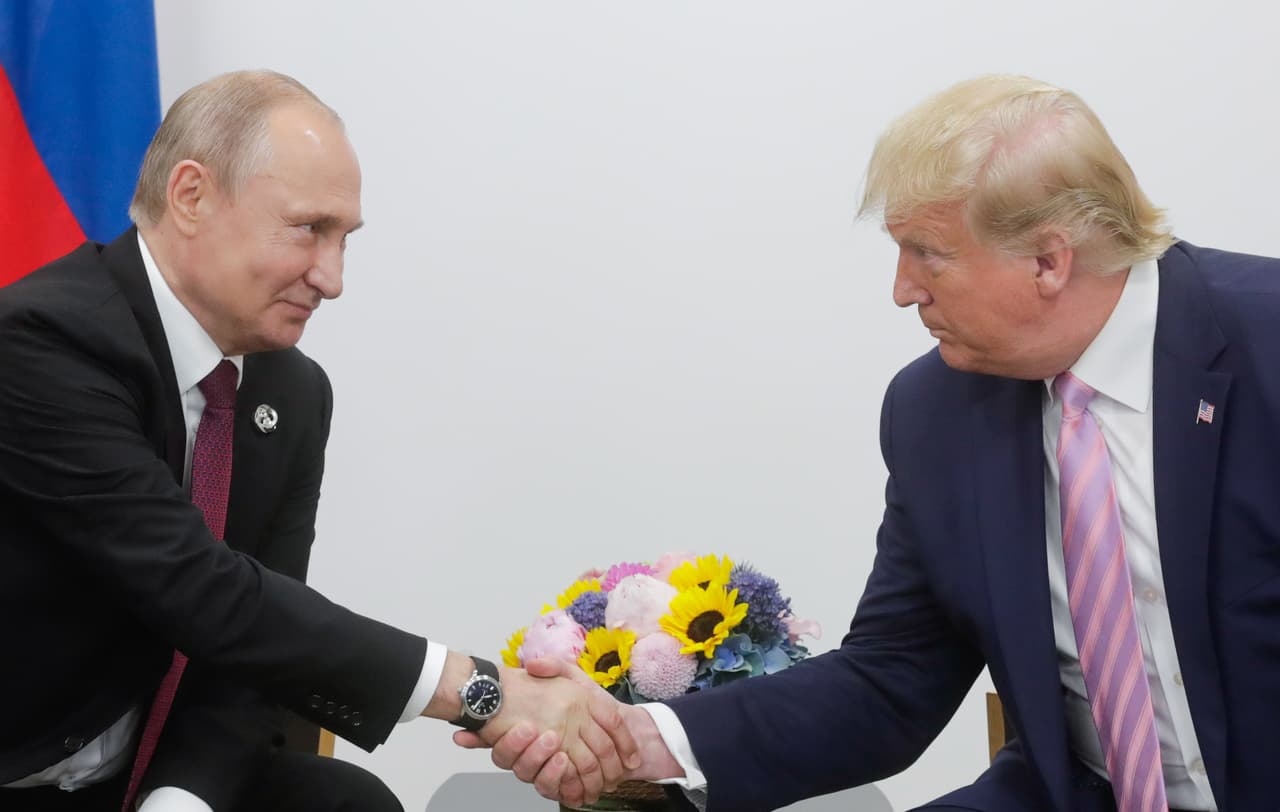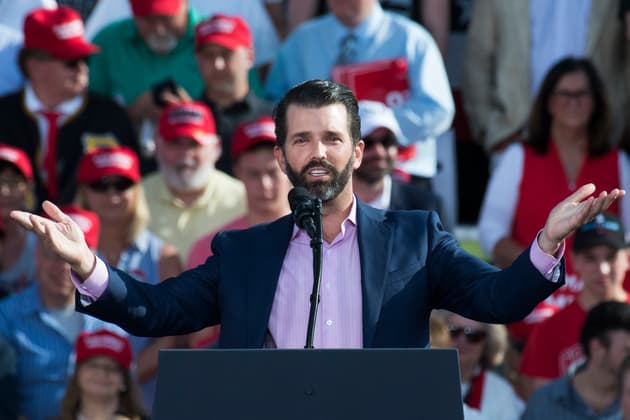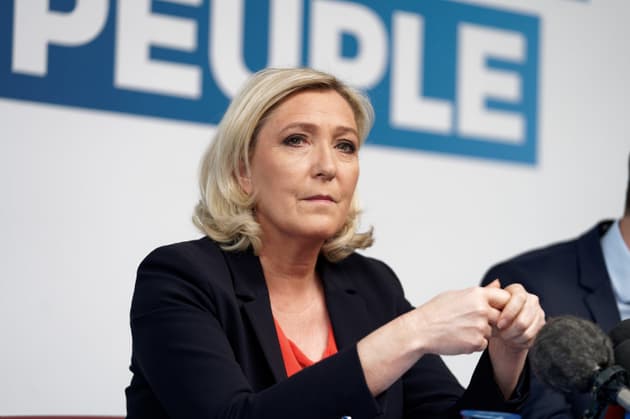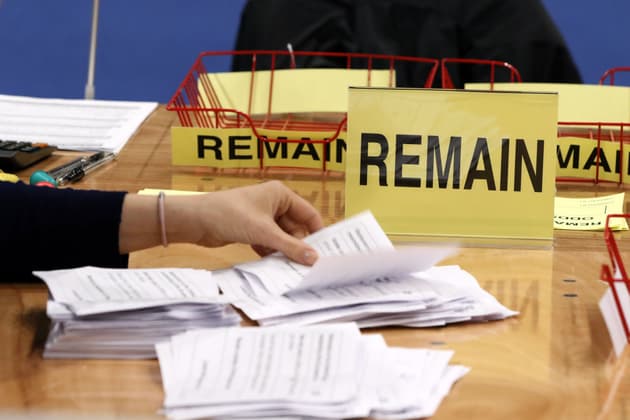
Russian interference threatens elections across the world — including ours
Free and fair elections are one of the most sacrosanct principles of any democracy – but one that in the Western world is facing a threat unprecedented in the modern era.
The spectre of electoral interference from Russia – whether in the form of hacking, dark money, bot armies, or a plethora of other techniques – has hung over elections and referendums from France to Ukraine, and from the USA to the UK.
The most visible and spectacular form of such interference is indisputably the complex operation that boosted the Trump campaign in the 2016 presidential election, leading to public outcry, congressional investigations and even criminal convictions.
The interlinked Russian attempts at influence were sophisticated and effective. The most visible of their efforts was the hacking of the email accounts of the Democratic National Committee and John Podesta, a key Hillary Clinton aide. The contents of those emails – including internal memos, infighting, and more – were later passed to WikiLeaks and published to huge media attention. The furore eventually led to the resignation of the DNC’s chairwoman on the eve of the party’s convention.
A dozen Russian intelligence officials were later indicted for their role in the highly targeted hack, which was launched hours after Donald Trump called on Russia – “if you’re listening” – to get Clinton’s emails.
The investigation led by the former FBI director Robert Mueller into Russian electoral interference and Trump’s alleged efforts to obstruct such an inquiry found evidence that several individuals connected to the Russian government had made contact with senior figures in Trump’s campaign, including his son.
Donald Trump Jr famously tweeted an email thread detailing his contacts with a “Russian government attorney” in a Trump Tower meeting a year before. Rob Goldstone, a British publicist, emailed him to let him know the “Crown prosecutor [sic] of Russia … offered to provide the Trump campaign with some official documents and information that would incriminate Hillary”.
Trump Jr had replied, “if it’s what you say I love it” and agreed to the meeting, although he later said it had been largely useless. It is a criminal offence in the USA to accept foreign government help in an election campaign.
 Donald Trump Jr admitted meeting "a Russian government attorney" during his father's presidential campaign
Getty Images
Donald Trump Jr admitted meeting "a Russian government attorney" during his father's presidential campaign
Getty Images
Elsewhere, swarms of Twitter and Facebook accounts – controlled from a nondescript building in St Petersburg – spread pro-Trump messages and launched vicious attacks on his opponents. The “bot” accounts, semi-automated fake personas managed by Russian operatives, often spread misinformation or lurid memes in a coordinated effort.
A report from the Senate Intelligence Committee, published this July, concluded Russia had targeted election systems in all 50 states of the USA, cataloguing “an unprecedented level of activity against state election infrastructure”.
But concerns over electoral interference operations from Russian sources extend far beyond the USA. The playbook has been developed through years of meddling in the elections of its near neighbours in eastern Europe, and now has moved further afield.
In July this year BuzzFeed News published audio of a close aide of Italy’s then deputy prime minister, the far-right leader Matteo Salvini, discussing a plot to divert millions of dollars of Russian money to fund Salvini’s party. Marine Le Pen’s French far-right party, National Rally, has faced repeated accusations of receiving Russian funding. And in Austria, a far-right leader was caught promising government contracts to a woman he believed was the niece of a Russian oligarch, while his party had a cooperation agreement with Vladimir Putin’s party in Russia.
Even in the recent European Parliament elections, an EU Commission report from June noted: “[T]he evidence collected revealed a continued and sustained disinformation activity by Russian sources aiming to suppress turnout and influence voter preferences.
“These covered a broad range of topics, ranging from challenging the Union’s democratic legitimacy to exploiting divisive public debates on issues such as migration and sovereignty. This confirms that the disinformation campaigns deployed by state and non-state actors pose a hybrid threat to the EU.”
 Marine Le Pen's far-right party has been accused of taking Russian money
Getty Images
Marine Le Pen's far-right party has been accused of taking Russian money
Getty Images
However, when it comes to the UK, such official sources are lacking, despite widespread concerns around Russian interference in the 2016 Brexit referendum and accusations of broader attempts at spreading misinformation.
Academics and media outlets alike uncovered evidence of Russian bot networks tweeting about Brexit in the run-up to the referendum, while also pushing divisive messages on immigration and Muslims.
The parliamentary select committee for digital, culture, media and sport published a report calling for further investigation of possible Russian influence on the Brexit vote in its report on fake news and online disinformation, published in February this year.
As prime minister, Theresa May publicly addressed Russian disinformation and electoral interference in a speech to City leaders in November 2017. Accusing Russia of a “sustained campaign of cyber-espionage and disruption”, which she said had included meddling in elections, May said: “It is seeking to weaponise information. Deploying its state-run media organisations to plant fake stories and photoshopped images in an attempt to sow discord in the West and undermine our institutions.”
Outside of direct interference with elections, both major parties have faced criticism over perceptions of potential close links with members of the Russian ruling classes.
The Conservative party has faced sustained criticism for accepting large sums from Russian oligarchs, first revealed by The Bureau in 2014 when Lubov Chernukhin, the wife of a former Russian minister, made a £160,000 donation in return for a game of tennis against Boris Johnson and David Cameron. The donations were legally permissible and there is no evidence they were anything other than legitimate gifts from private individuals and companies.
Boris Johnson has also faced questions over parties at the Italian villa of Evgeny Lebedev, the owner of the Independent, which he attended without his security detail last year.
Meanwhile, chief Labour strategist Seumas Milne has faced scrutiny over concerns about his perceived potential connections with Russians, including a sympathetic on-stage interview with Putin himself.
However, any British voters looking for a definitive report on the extent or the success of Russian efforts to influence UK politics will do so in vain. Although the non-partisan Intelligence and Security Committee has produced such a report, Boris Johnson refused to let it be published before parliament was dissolved for the election.
 There are fears Russia may have interfered in the 2016 referendum on EU membership
There are fears Russia may have interfered in the 2016 referendum on EU membership
For Russia, “just destabilizing an adversary society by creating conflict in it and creating doubt, uncertainty, distrust in institutions, all of these things” can be a win, said Keir Giles, the senior consulting fellow on Russia at Chatham House.
“The Russian zero-sum view of the world, if you weaken your adversary in that way, even if it's apparently insignificant, you make yourself stronger.”
Electoral interference “is a tool Russia has found effective in other countries it considers to be its adversaries, in the US, France, and so on,” he said. “Interference in the Brexit referendum, or just in pushing UK politics to the extremes, would be in line with its strategy of provoking societies and promoting divisive views.
“Now there is so much interest in the contents of the report … it is hard to see why the process [of publication] cannot be accelerated to dispel people’s doubts.”
Update, 27 November 2019: The Bureau has been force to end our legal challenge against the prime minister's decision to delay the release of the report. You can read the full explanation here.
Header image: Donald Trump and Vladimir Putin shake hands at the Osaka summit. Credit: PA Images
Our reporting on the Russia Report was funded out of Bureau core funds. None of our funders have any influence over the Bureau’s editorial decisions or output.




